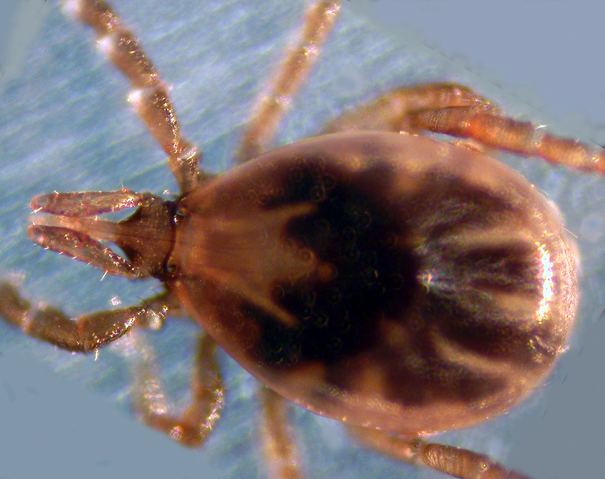 |
This is a file from the Wikimedia Commons. Information from its description page there is shown below.
Commons is a freely licensed media file repository. You can help.
|
| Description |
The blacklegged tick ( Ixodes scapularis), the primary vector for Lyme disease in the central and eastern United States. (And elsewhere, too. Uploader) |
| Date |
Published: May 9, 2006 |
| Source |
A New View on Lyme Disease: Rodents Hold the Key to Annual Risk. Gross L, PLoS Biology Vol. 4/6/2006, e182. doi:10.1371/journal.pbio.0040182 |
| Author |
See source |
Permission
( Reusing this file) |

 |
This file is licensed under the Creative Commons Attribution 2.5 Generic license. |
|
|
|
- You are free:
- to share – to copy, distribute and transmit the work
- to remix – to adapt the work
- Under the following conditions:
- attribution – You must attribute the work in the manner specified by the author or licensor (but not in any way that suggests that they endorse you or your use of the work).
http://creativecommons.org/licenses/by/2.5 CC-BY-2.5 Creative Commons Attribution 2.5 truetrue
|
|
This file was published in a Public Library of Science journal. Their website states that the content of all PLOS journals is published under the Creative Commons Attribution 2.5 license, unless indicated otherwise.
|
|
File usage
The following pages on Schools Wikipedia link to this image (list may be incomplete):
Schools Wikipedia was created by children's charity SOS Children. SOS Children cares for children who have lost their parents. Our Children's Villages give these children a new home and a new family, while a high-quality education and the best of medical care ensures they will grow up with all they need to succeed in adult life. There are many ways to help with SOS Children's Villages.


